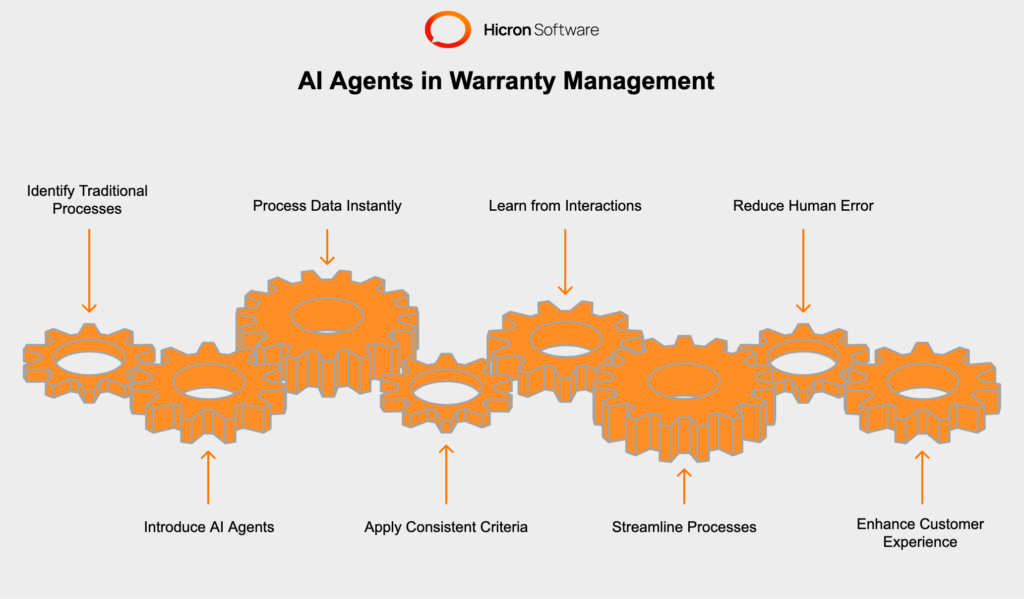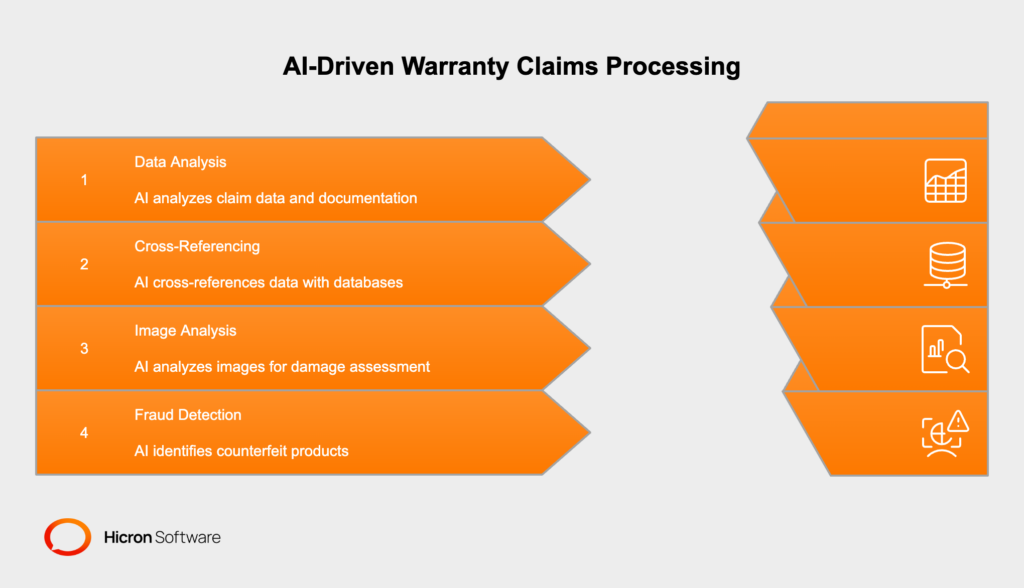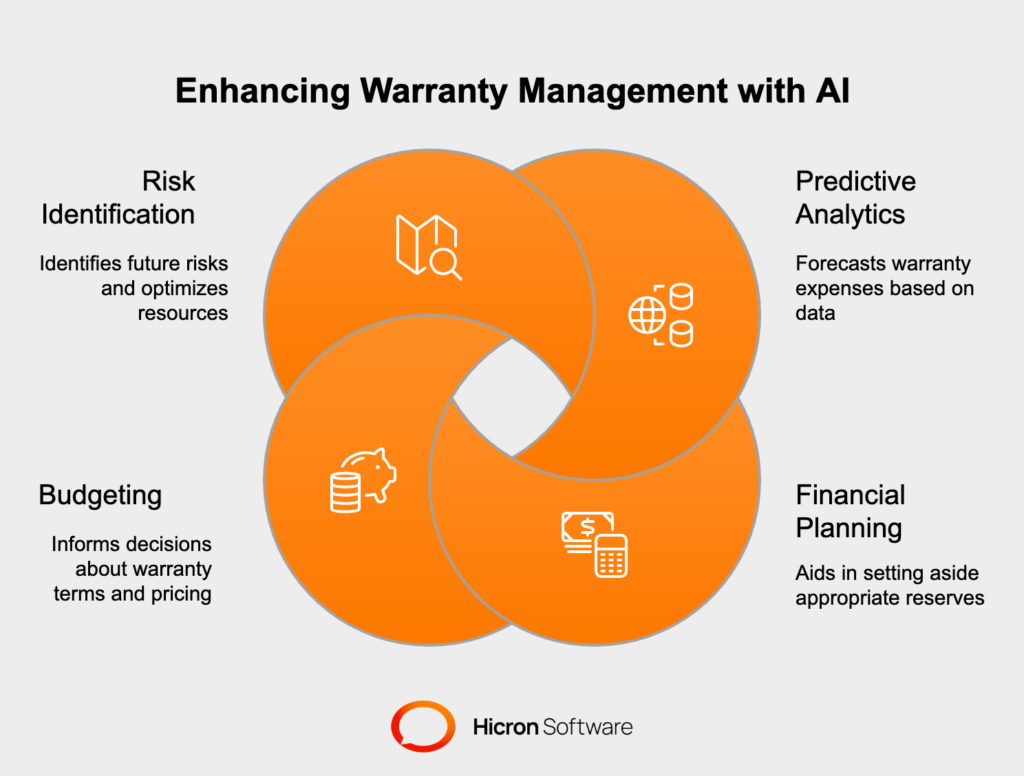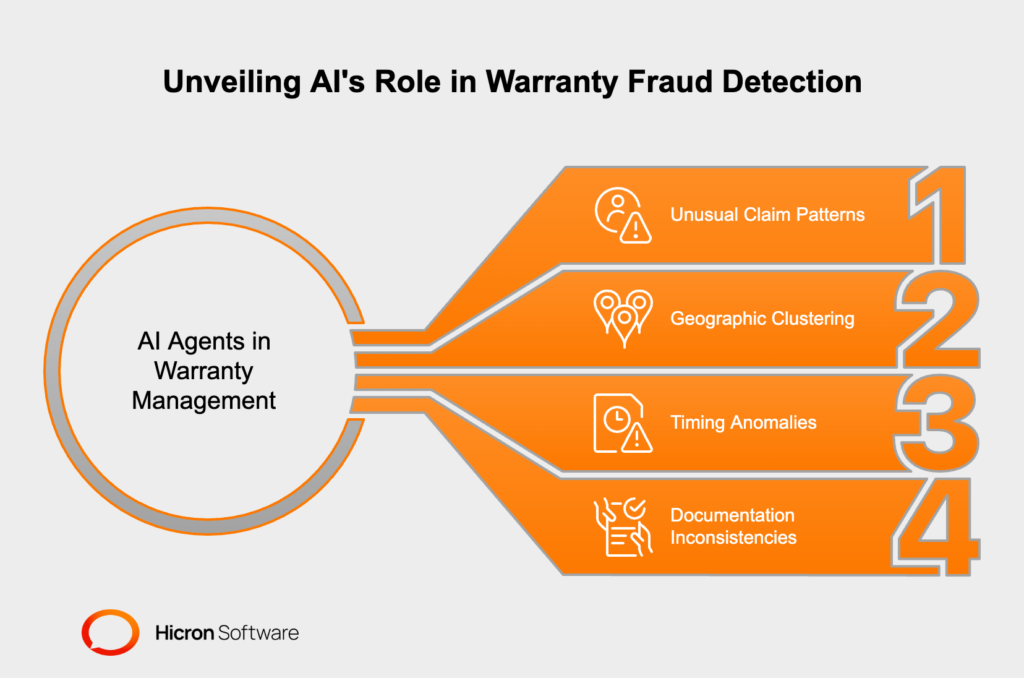A Guide to Balancing Costs and Benefits in Process Automation
- November 21
- 8 min

The warranty management landscape is undergoing a significant transformation as AI agents in warranty management reshape how companies handle warranty claims, customer service, and operational processes. From automated claims processing to predictive analytics, AI agents in warranty management are becoming indispensable tools for manufacturers seeking to improve efficiency, reduce costs, and enhance customer satisfaction in their warranty operations.
Key takeaways:
Manual processes, lengthy claim reviews, and reactive approaches to product issues have long characterized traditional warranty management. Customer service representatives would manually review each claim, verify warranty coverage, and process approvals or denials based on documentation provided by customers. This approach, while thorough, often resulted in extended processing times, inconsistent decisions, and significant operational costs.

The introduction of AI agents in warranty management is changing this paradigm. AI agent systems can process vast amounts of data instantaneously, apply consistent decision-making criteria, and learn from each interaction to improve future performance. The result is a more streamlined, accurate, and customer-friendly warranty management process.
How AI agents optimize warranty management is evident in their ability to address inefficiencies and reduce human error in processes like data handling and decision-making, making them essential tools for manufacturers.
One of the most impactful applications of AI agents in warranty management is automated claims processing. These systems can instantly analyze submitted warranty claims by examining product serial numbers, purchase dates, failure descriptions, and supporting documentation such as photos or videos. AI agents in warranty management cross-reference this information against warranty databases, product specifications, and known issue patterns to determine claim validity.
The technology goes beyond simple data matching.
This automated approach dramatically reduces processing times from days or weeks to minutes while maintaining high accuracy rates. Customers receive faster responses, and companies can allocate human resources to more complex cases that require personal attention and judgment.

AI agents in warranty management excel at identifying patterns and trends within large datasets, making them valuable tools for predictive warranty analytics. By analyzing historical warranty claims, product usage data, environmental factors, and manufacturing information, these systems can predict which products are likely to fail and when those failures might occur.
This predictive capability enables manufacturers to take proactive measures rather than simply reacting to warranty claims as they arise. Companies can
This approach not only reduces warranty costs but also protects brand reputation by addressing issues before they affect large numbers of customers.
Predictive analytics also help with financial planning and budgeting. AI agents in warranty management can forecast warranty expenses based on current product populations, historical failure rates, and emerging trends, allowing companies to set aside appropriate reserves and make informed decisions about warranty terms and pricing.

From forecasting to proactive planning, the role of predictive analytics in AI warranty solutions is invaluable for identifying future risks and optimizing resources.
Customer service is another area where AI agents in warranty management are making significant contributions.
When cases require human intervention, AI agents in warranty management ensure handoffs by maintaining complete conversation histories and context. This continuity prevents customers from having to repeat information and allows human agents to focus on complex problem-solving rather than basic information gathering.
The benefits of AI for improving warranty claims are exemplified in these efficient, customer-centric processes, which lead to higher satisfaction rates and faster resolutions.
Warranty fraud represents a significant cost for manufacturers, with some estimates suggesting it accounts for billions of dollars in losses annually.
AI agents in warranty management are proving highly effective at detecting and preventing fraudulent warranty claims through sophisticated pattern recognition and anomaly detection. These systems analyze multiple data points to identify suspicious activity, including
Machine learning algorithms continuously improve their detection capabilities by learning from confirmed fraud cases and evolving to recognize new fraud patterns as they emerge.

Effective warranty management requires coordination between claims processing, parts inventory, and service delivery. AI agents in warranty management help optimize these interconnected processes by predicting parts demand based on warranty trends, seasonal patterns, and product populations in the field.
These systems can automatically trigger parts orders when inventory levels approach predetermined thresholds, ensuring that repair parts are available when needed without maintaining excessive stock levels. They can also optimize service scheduling by analyzing technician availability, geographic distribution of service requests, and parts availability to minimize customer wait times and service costs.
Modern warranty management involves data from multiple sources, including sales systems, manufacturing databases, customer service platforms, and field service applications. AI agents in warranty management excel at integrating and analyzing this disparate data to provide comprehensive insights into warranty performance and product quality.
By following these steps, businesses can unlock the full potential of AI agents in warranty management to improve efficiency, enhance customer satisfaction, and reduce operational costs.
By following this structured timeline, businesses can successfully integrate AI agents in warranty management, ensuring a smooth transition.
|
Cost Category |
Description |
Estimated Impact |
|
Software |
Licensing fees for AI platforms, varying by features and scalability. |
High upfront cost but necessary for core AI functionalities. |
|
Hardware |
Upgrades to servers or acquisition of new cloud infrastructure. |
Medium to high based on system requirements. |
|
Data Preparation |
Cleaning, organizing, and migrating warranty records for optimal AI performance. |
Significant investment to ensure data accuracy and usability. |
|
Consulting Fees |
Costs for system integration, customization, and employee training. |
Medium initial cost but vital for smooth implementation. |
|
Pilot Program |
Expenses tied to testing and validating small-scale AI use cases. |
Moderate initial cost to evaluate performance and ROI. |
When implementing AI agents in warranty management, companies should be aware of several upfront costs to effectively plan their budget.
Additionally, initial pilot programs may have expenses tied to testing and validation before full-scale deployment. Understanding and preparing for these upfront costs ensures smoother implementation and maximizes the benefits of AI agents in warranty management, such as streamlined processes, fraud prevention, and improved customer experiences.
The role of AI agents in warranty management continues to evolve as technology advances and companies gain experience with these systems. Emerging innovations such as IoT, blockchain, and advanced machine learning models show significant potential for future applications.
While AI agents in warranty management offer remarkable benefits, unlocking their full potential requires investment in data quality, system integration, and team training. The path forward lies in combining AI’s efficiency with human oversight to deliver exceptional results.
AI agents are revolutionizing warranty management by replacing inefficient manual processes with automation, predictive analytics, and improved resource allocation. By strategically implementing AI agents in warranty management, companies can improve operational efficiency, boost customer satisfaction, and optimize costs, creating a robust framework for future growth.
AI agents in warranty management are intelligent systems that streamline warranty operations by automating claims processing, detecting fraud, and analyzing data to predict potential product failures. They help businesses improve efficiency, cut costs, and enhance customer satisfaction.
AI agents evaluate warranty claims by analyzing product serial numbers, purchase dates, failure descriptions, and more. They validate claims quickly by cross-referencing databases and even analyzing photos of damages, dramatically reducing processing times while ensuring accuracy.
Yes, AI agents use pattern recognition and anomaly detection to identify suspicious claims. They analyze data points like geographic clusters, timing irregularities, and inconsistencies in documentation, flagging potential fraud for further investigation.
Predictive analytics, with AI agents, forecasts product failures and warranty costs by analyzing historical data and trends. This helps manufacturers address issues proactively, optimize resources, and enhance product reliability, reducing overall warranty costs.
